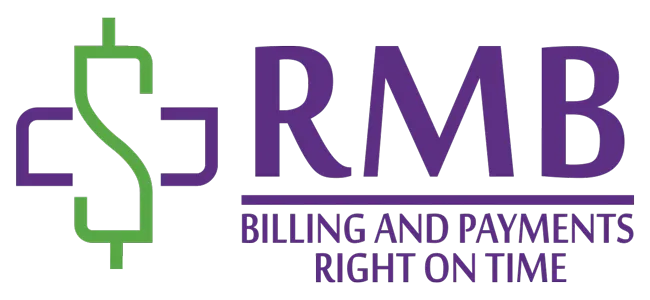Major Reasons for Medical Claims Denials and How to Avoid Them
Denied insurance and old accounts are a significant source of pain for specific health centers and practices. If a patient’s insurance claim has been rejected or denied, not only can the cash flow will affect but can also spoil your relationship with your patient.
Here are several reasons and ways to avoid the generation of denied claims. An unsatisfactory detail or editor causes a problem. However, additional research has sometimes been required in medical backrooms. These are some situations in which denied insurance claims could be generated.
Top 5 Reasons for Denied Medical Claims

1. Lost or Expired Claims
Sometimes insurance claims get misplaced or lost for several reasons, so they never go through the processing phase for payment. For this reason, medical billers should timely follow up on claims through calls and insurance web portals. RMB account receivable team makes sure to follow up on submitted claims after 15 days of claim submission.
Also, medical billers should pay attention to the timely filing limit of each insurance and their dedicated plans. Otherwise, the time limit for filing the claim gets expires, and it becomes almost impossible to retrieve payment for it if you don’t have a valid reason for late filing. Every insurance company imposes different deadlines for submitting claims.
Sometimes, you can clear the reason for late filing by discussing it with an insurance representative on a phone call. But most of the time, an appeal with proof of late filing needs to be submitted through the portal, fax, or at mailing address.
As the technology is creating ease in every aspect of life, so in the revenue cycle management by different advanced billing software. You may be able to use your billing software to get information about the timely filing limits and procedures for submitting claims. Generally, it is good to file claims to the insurance as soon as possible after services have been rendered.
2. Claim Form Errors : Incorrect Patient Data or Diagnosis/Procedure Codes
Rejections of claims are often due to simple errors, such as the incorrect patient’s name or the characters in the insurance member ID number are missing. These are easy fixes, but fixing them will reduce the denial ratio and boost the revenue cycle.
Incorrect diagnosis and procedure codes can also lead to the rejection of claims. Nothing can be better than replacing in-house medical coders with expert medical coding service providers to avoid coding-related rejections.
3. Lack of Medical Needs
An insurance company will not pay for a medically unnecessary treatment. These circumstances can be complicated for both involved, but you can prevent them by getting prior authorization.
Effective relations between physicians, medical billing professionals, insurers, and patients help stay informed about medical decisions whenever the medical criteria are not well defined. If a claim has been denied because of an exact need, the practice can either cover the services expense or try to obtain all reimbursement, all without good choices.
4. Out of Network Provider Usage
Insurance networks may change year after year and patients do not know or change insurance providers to see and receive full benefits. When you first ask patient insurers (at appointment booking or registration), the billing staff can decide if your practice is part of the patients’ insurance network and what kind of benefits the patient can expect (if any). Again, your medical billing program will support you by keeping you updated about your practice networks.
5. Billing Tasks Outsourcing
Medical offices often fight to keep up with their medical financial needs. Less paperwork and administrative orders should have been pursued in previous decades. But back offices now have a growing range of laws and policies to deal with.
Simultaneously, EMR and other billing software must be correctly used. Healthcare practitioners are trained not to pay and finance but to concentrate on patients health only. Outsourcing medical billing responsibilities to a revenue cycle management company that focuses on proper billing and generating revenue is more meaningful revenue.
The fact that a company focuses solely on medical accounting activities means that insurance claims are exceptionally qualified to file and track. They have workers that correspond regularly with many insurance payers.
Several billing systems, clearinghouses, and EHRs are well aware of them. Their RCM workers are more expert and effective in optimizing payments and preventing challenges by repeating their amounts.
If there are challenges, you should make detailed telephone calls and emails to address them. An experienced medical billing firm may also monitor and avoid old accounts and identify other revenue loss areas during the medical office’s billing process.
General Recommendations to Avoid Claim Denials
Healthcare providers billing personnel should track financial statements and check for bottlenecks in the claim submission process. If a claim persists after 30-45 days, the subsequent insurance payer may need to be tracked.
Upon confirmation of the claim status, the medical billing staff needs to enter the number of requests and the estimated payment date. Medical professionals should report the payment amount, paid date, and sums charged once the payment has been received.
Special consideration is needed while getting details of a patient’s insurance. Several factors can affect the coverage and the status of the network. Any of these can affect the quality of a medical claim, from co-payment, deductibles, and secondary versus primary insurance.
Each healthcare organization must closely track prior authorizations, patient populations, and employees qualifications for their job responsibilities. Failure to provide administrative supervision in these areas could quickly lead to a medical center’s income cycle problems.
No one wants to operate on rejected requests, and it increases the time it takes for services to be paid for. Fortunately, you can take several measures to minimize the risk. Excellent contact with customers and insurers, well-trained code experts and workers at the front desk, and excellent medical billing procedures can help avoid claims for harmful use and headaches.




